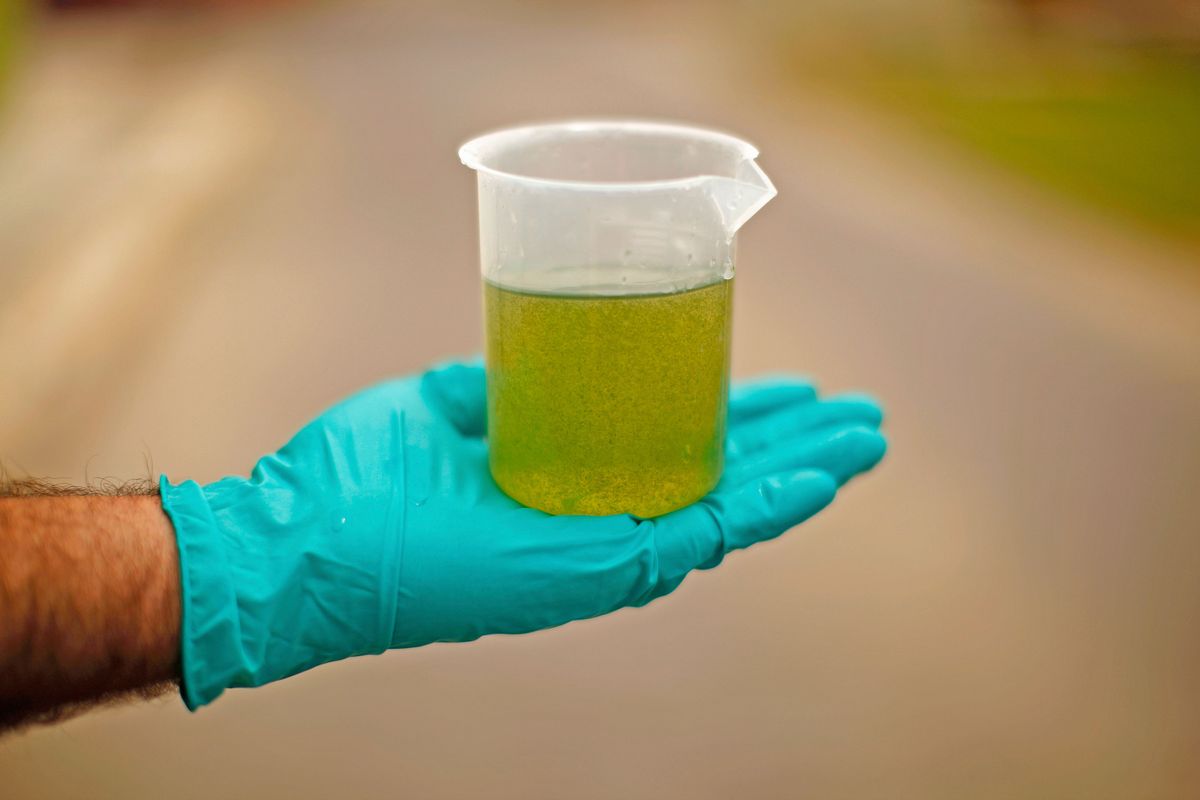The pilot facility in Chiclana de la Frontera will use its wastewater and readily available sunlight to produce an algae-based biofuel and biogas. The US $15.7 million project, All-gas, received $9 million from the European Union.
Municipal wastewater treatment plants are often touted as a relatively untapped source of clean energy. The most common way to take advantage of otherwise wasted energy is to capture the gas produced in the anaerobic digestion process and use it to power some of the plant’s operations. But producing biofuels from municipal wastewater is a novel approach.
"Nobody has done the transformation from wastewater to biofuel, which is a sustainable approach," All-gas project leader Frank Rogalla told Reuters.
At its start, the process looks similar to traditional wastewater treatment. Contaminants are removed and then anaerobic bacteria feed on some of the waste while giving off gas, including carbon dioxide, which can be captured and used by the plant.
The next step is to add algae to the pools of wastewater and expose them to the plentiful sunlight found in the region. After reaching a critical mass, the algae are extracted to be processed for oil. The remaining algal biomass left behind can be used to make bio-methane, carbon dioxide and minerals, according to Aqualia, the company that owns the treatment facility.
Seven European partners are involved in the pilot project, which will last for five years. All-gas is part of an effort to meet the EU’s Renewable Energy Directive to increase transport biofuels from 2.4 to 10 percent by 2020. The EU is not alone. Dozens of startups, government research agencies across the globe, and nearly every large oil company are also working on algal biofuels.
The goal of All-gas is to produce 3,000 kilograms of dry algae per day with an oil content of 20 percent. That would be enough biodiesel to fill the tanks of about 200 cars. Bio-methane production from anaerobic digestion and sludge residue is expected to provide an equivalent amount of bio-methane for another 200 cars. The plant would eventually cover 10 hectares of land if it moves beyond the five-year pilot.
Despite the enthusiasm of project leaders, economically creating biofuels from algae has remained an elusive goal. There have been some gains in the amount of oil that can be coaxed from algae, but the process remains too expensive to be an alternative to conventional petroleum-based fuels. One benefit of using wastewater, however, is that wastewater treatment usually costs municipalities money to power the plant and truck away sludge. Any process that can reduce either of those costs could make the entire system more cost-effective.
The team of scientists involved in All-gas, which includes researchers at the Fraunhofer Umsicht Institute and the University of Southampton, hope the pilot will provide enough insight to turn waste biomass into biofuel in other areas of the European Union. Aquila’s VP for international development, Miguel Jurado, also noted there are 17 other sun-filled countries, such as Abu Dhabi, that could be ripe for the technology if it is proven.
“We are turning an expensive environmental problem into a sustainable bioenergy source,” said Rogalla. “The opportunity is such, that 60 million people - roughly translated as the size of the UK population – would be able to power one million vehicles from just flushing their toilet!”
All-gas, hopes to fuel its first car by the end of the year.
Photos: Jon Nazca/Reuters





